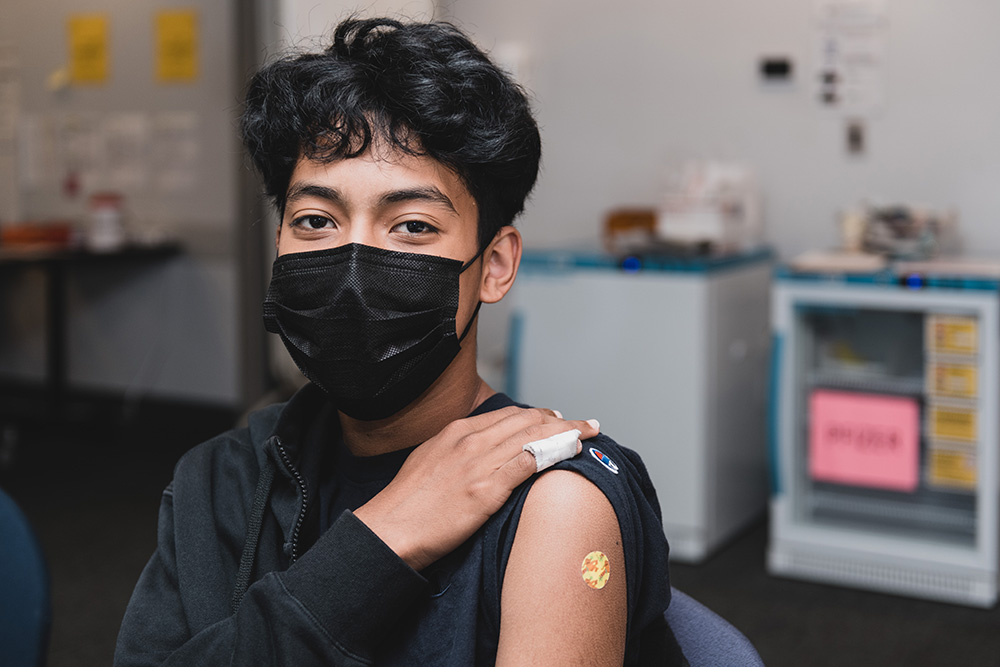What are myocarditis and pericarditis?
Both conditions affect how the heart functions. Usually, they’re temporary and mild. Myocarditis is an inflammation of a heart muscle called the myocardium. Pericarditis is a swelling and irritation of a heart membrane called the pericardium.
For young people, these conditions are often the result of a viral infection, including a common summer infection called coxsackie virus. The COVID-19 virus can also cause them.
Most cases are go away on their own, without long-term effects. If a case is more severe, it may require a few days in the hospital for medication and monitoring.
Symptoms include:
- Chest pain
- Shortness of breath
- Rapid or abnormal heartbeat
- Fatigue
If your child experiences any of these symptoms – whether or not they’ve been vaccinated – you should call their pediatrician.
> Related: What Should I Do When My Child Has a Common Cold During COVID-19?
Has the CDC found a link between these heart problems and the COVID-19 vaccine?
In rare cases, there may be a link to the mRNA vaccines made by Moderna and Pfizer. But this reaction is usually rare and mild, with a full recovery following proper care (like rest and, sometimes, medication).
Plus, studies in the U.S. and Israel have shown that COVID-19 infection is actually much more likely to cause myocarditis than getting the vaccine. In other words, one way to protect your child from myocarditis is getting their COVID-19 vaccine.
> Related: 4 Things Parents Should Know About Childhood Heart Murmurs
Should my child still get the COVID-19 vaccine?
Yes! The CDC continues to urge everyone ages 5 and up to get fully vaccinated. The reports of myocarditis and pericarditis after vaccination have been very rare, and for the most part, mild.
By comparison, the disease of COVID-19 has been horrific. It has caused devastating illness in many people, including children, and led to severe side effects. As a community, we are only now seeing the light at the end of the tunnel, thanks to vaccines.
The best thing you can do for your child is to get them fully vaccinated, and protect them from COVID-19.

